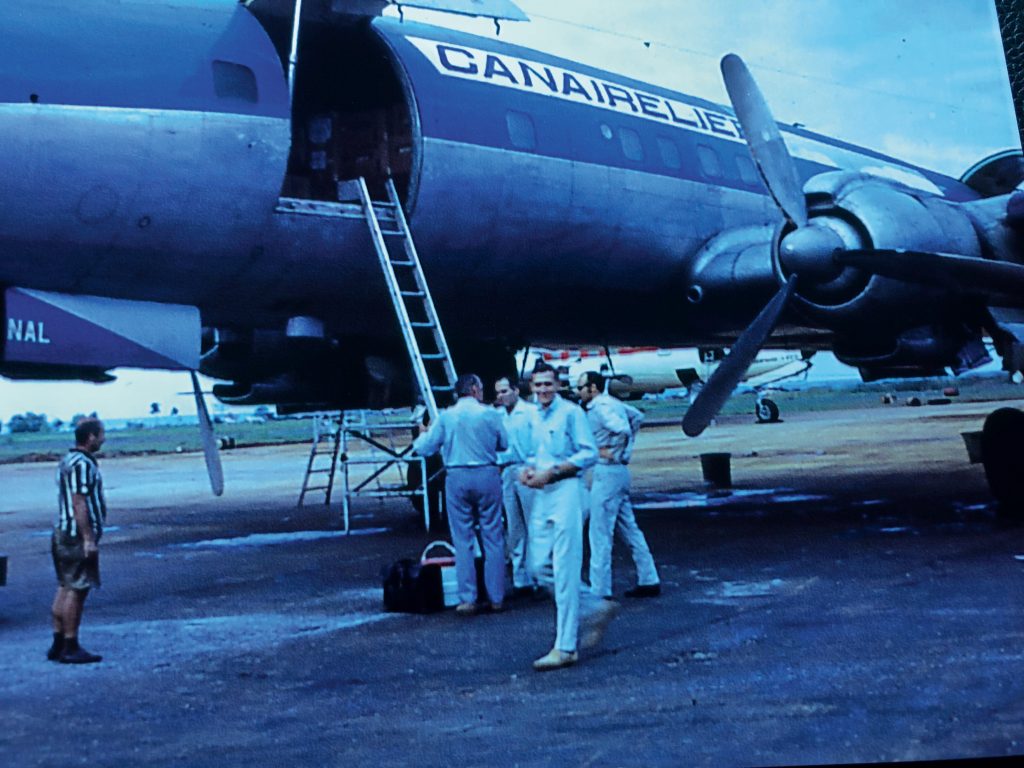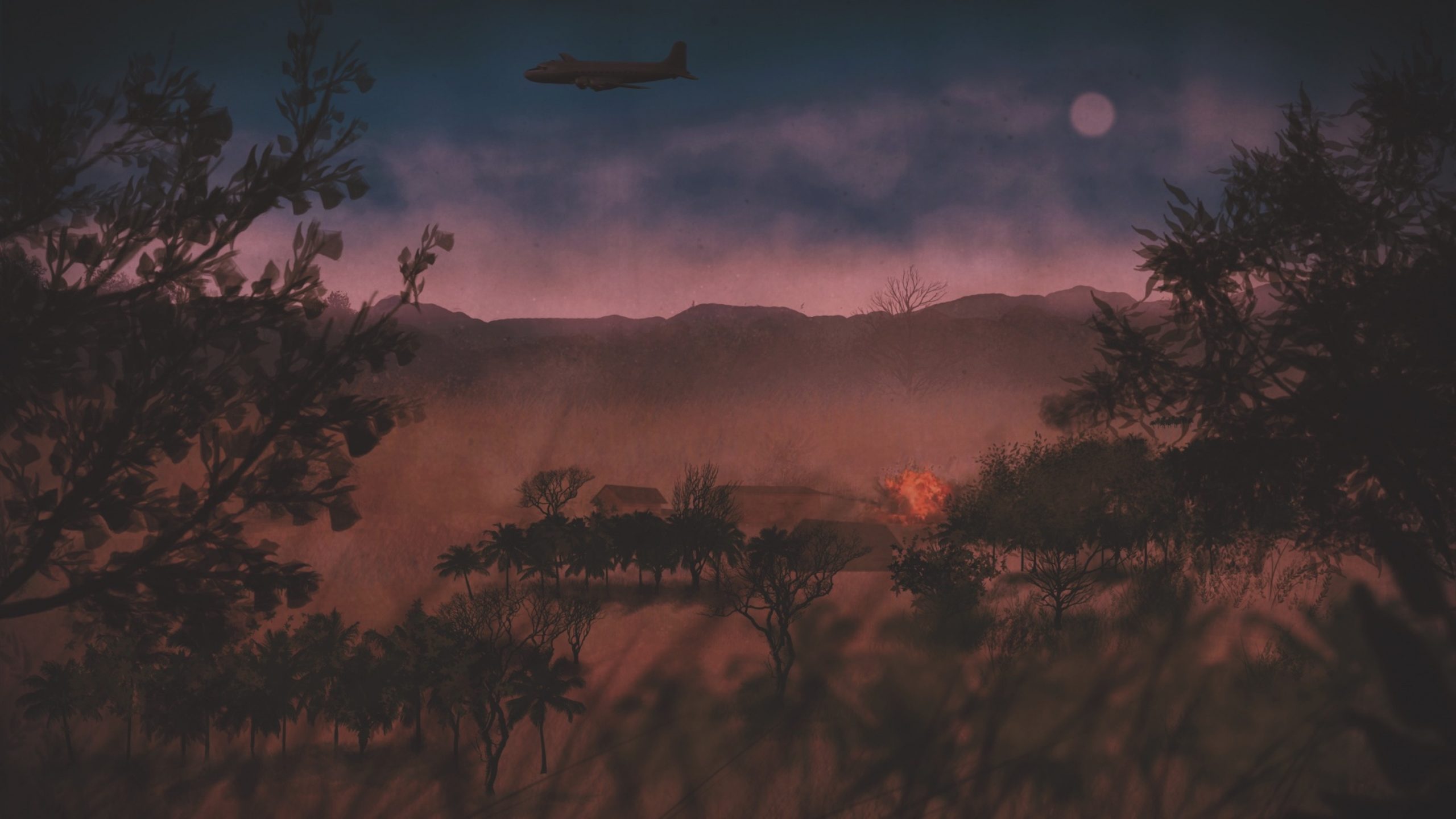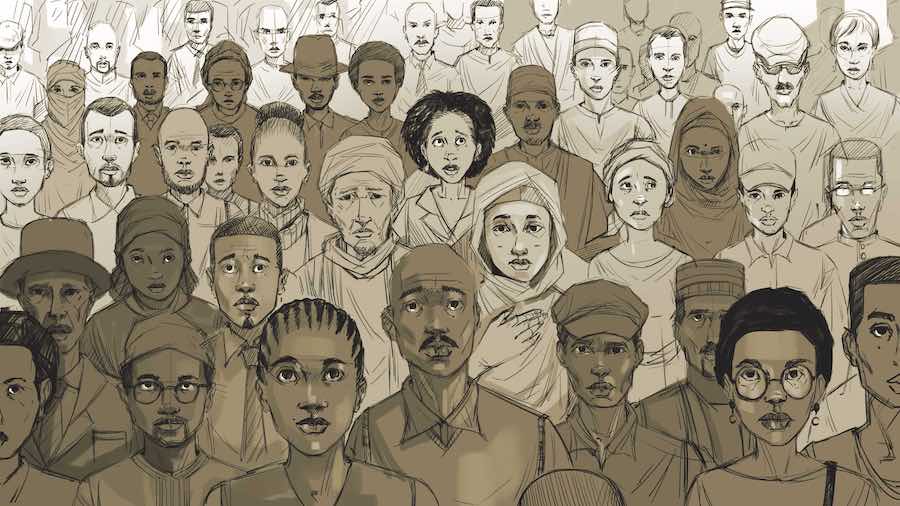Biafran children weep with swollen bellies, innocent casualties of a civil war that would kill an estimated two million people between 1967 and 1970. Operation Lights Out: The Story of CANAIRELIEF, a new documentary by Nigerian Canadian director Angela Onuora, revisits the horrors of the conflict between the Nigerian government and the breakaway region of Biafra. Yet the film also shows the compassion of humanity, in the form of an unlikely group of Canadians who helped pull off one of the greatest miracles in relief history — risking their lives to fly aid into Biafra, which was suffering a famine caused by a Nigerian military blockade.
“These kids died not knowing why they were dying. They didn’t care about politics — they just wanted to eat,” Onuora says.
You may unsubscribe from any of our newsletters at any time.

The Biafran War finds its deepest roots in history. Like many nations in Africa, Nigeria had its borders established in the infamous Berlin Conference of 1884-85, where European powers and the United States carved up the continent. Nigeria’s 371 ethnic groups suddenly found themselves lumped together as one.
After independence from Britain in 1960, Nigeria was divided into three regions, with Igbo people primarily in the east, Yoruba in the west and Hausa in the north. Tensions boiled over in 1966 when a failed Igbo-led coup led to a bloody backlash against Igbos in northern Nigeria. Over two million Igbos fled east, and in July 1967, the eastern region declared independence as the Republic of Biafra. The Nigerian military government responded by blocking food and medicine from entering Biafra.
As televised images of starving children brought the war home to a western audience, churches took matters into their own hands. A coalition of Protestant and Catholic organizations from Europe and the United States formed Joint Church Aid (JCA) — nicknamed “Jesus Christ Airlines” — in 1968 and began delivering food supplies in daring night flights, dodging bombers and gunfire to bring in desperately needed aid.
The Canadian federal government, meanwhile, was hesitant to get involved directly, fearing the effect that support for Biafra would have on Quebec separatists. “[Pierre] Trudeau, who was from Quebec, did not want to be seen supporting a secessionist movement,” says Onuora.
But Canadians wanted to do something. After the JCA formed, Rev. Ted Johnson, the secretary for overseas missions in the Presbyterian Church in Canada, met with Jack Grant, a Jewish businessperson, and Henry Fletcher, director of Oxfam Canada. The three men decided to purchase a plane and establish CANAIRELIEF.

The group ran ads across Canada to garner public support and donations, and soon Capt. Jack Patterson, a pilot at Nordair, joined the cause. Together with a crew assembled through Patterson’s connections at Nordair, CANAIRELIEF made its first trip to Biafra on Jan. 23, 1969. Over the next year, it made 660 flights, each carrying enough food to feed about 200,000 people for a day.
More on Broadview:
- How nuns are helping displaced Ukrainians amid the Russian invasion
- ‘We Meant Well’ explores saviourism and complicity in international aid
- Babyn Yar exhibition explores the birth of a synagogue at the site of a massacre
Onuora was unaware of CANAIRELIEF when she and her family immigrated to Ontario from Nigeria almost a decade ago. She stumbled on the story when her father-in-law visited and wanted to find his high school chemistry teacher, who was Canadian. “That was the first time I heard there were Canadians in Nigeria,” she says.
Her father-in-law’s teacher was Ronald McGraw, who lived in St. Catharines, Ont., before his death last year. But in 1961, he was a fresh graduate hired to teach at the Hope Waddell Training Institution, a Presbyterian mission school in eastern Nigeria. It’s where McGraw met his wife, Hazel, who also taught chemistry. On furlough in Canada when the war broke out, they chose to go back to Biafra to help with the relief effort. “They felt that they had to do the right thing,” says Onuora. “They felt attached to the people.”
After hearing the McGraws’ story, Onuora began to interview more Canadians who were involved in the airlift. “The more I talked to them, the more intriguing it was for me. After a while, I couldn’t sleep,” she says. “All I was thinking about was this story.” Operation Lights Out is the result. She hopes the film will help Canadians remember and honour those who helped in Biafra, including four airmen who died when their plane crashed during a landing attempt.

By the end of the war in January 1970, Joint Church Aid had delivered almost 55,000 tonnes of food and medicine to Biafra, about 20 percent of which was flown in by CANAIRELIEF teams. The international airlift — the largest civilian-led relief operation in history — saved over a million lives.
“Human compassion is one of the most powerful driving forces,” says Onuora. “You don’t have to be in people’s shoes to be motivated to help them; the fact is you recognize that this is wrong, and you want to do your bit.”
***
Nathan Abraha is a writer in Toronto and a recent Broadview intern. Operation Lights Out is available to stream at vimeo.com/ondemand/operationlightsoutmovie.













